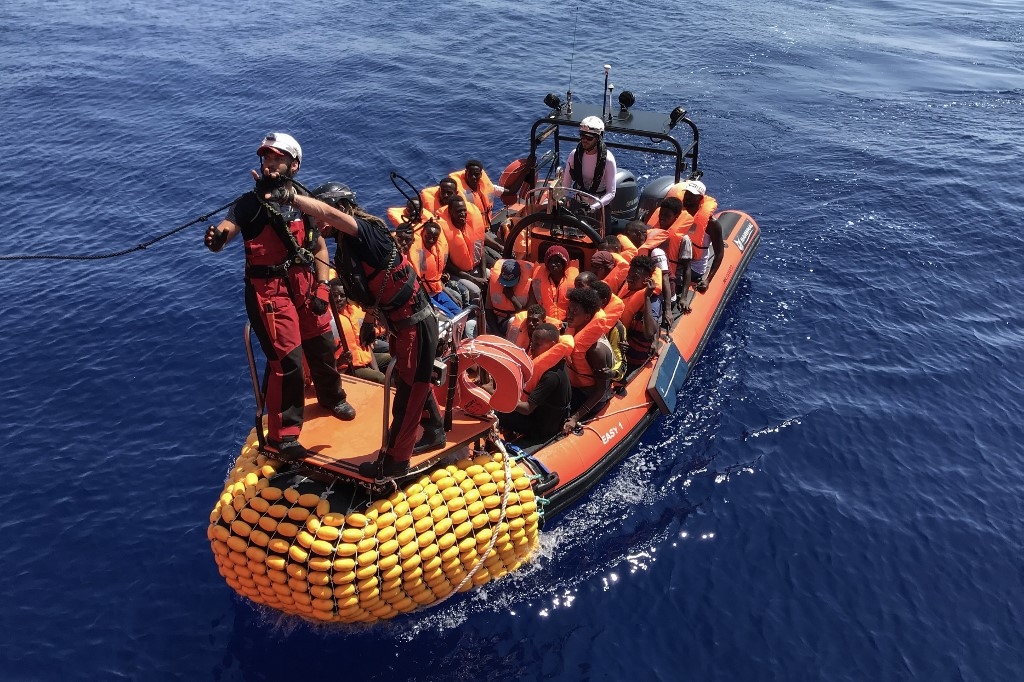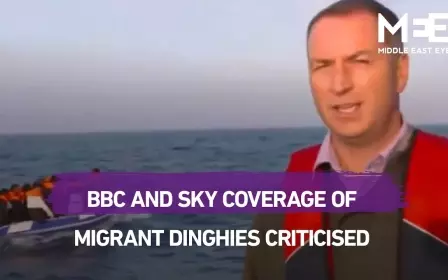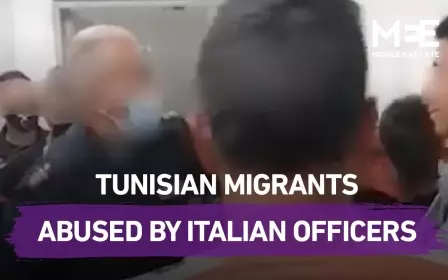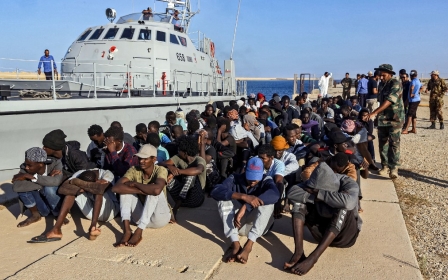Number of migrants landing in Italy more than doubles in past year

The number of migrants landing on Italy's shores has more than doubled in the last year as an economic crisis in Tunisia fuels migration in boats across the Mediterranean, Interior Minister Luciana Lamorgese said on Saturday.
More than 21,000 people reached Italy between August 2019 and the end of July, up 148% year-on-year, the minister said on Saturday.
Lamorgese said the majority of the arrivals were "autonomous landings, hard to manage... with small boats and dinghies," rather than those rescued at sea and brought ashore. Many of them land on Italy's southern Mediterranean island of Lampedusa.
In the 12-month period, just over 5,000 people were rescued, mainly by ships operated by NGOs, according to data from the ministry.
Some 41.6 percent of the migrants who arrived over the past year departed from Tunisia, followed by Libya at 40.5 percent.
Over a third of those who arrived listed Tunisian as their nationality.
Tunisia is battling high unemployment and political instability, pushing more economic migrants to cross to Italy.
"The numbers aren't very high - they are certainly higher than last year's but we must put them into context: Tunisia is in a deep economic, social and political crisis," Lamorgese told reporters.
"We have seen entire families leave to reach Italian territory."
For years Italy has been the primary route into Europe for hundreds of thousands of asylum seekers and other migrants and Libya's west coast a main departure point for African migrants hoping to reach Europe.
From 2016 to 2017, Italy recorded 182,877 migrant arrivals.
After Italy signed a deal with Libya for its coast guard to prevent migrant departures, the number fell to 42,700 in the 2017 to 2018 period.
Lamorgese's predecessor, head of the anti-immigrant League party Matteo Salvini, took a hard line against charity ships that rescued migrants at sea, closing Italian ports and accusing the rescue groups of de facto collaboration with human traffickers.
Lamorgese said that she would meet Tunisian President Kais Saied on Monday to discuss the issue, along with Italy's Foreign Minister Luigi di Maio and EU commissioners Ylva Johansson and Oliver Varhelyi.
Middle East Eye delivers independent and unrivalled coverage and analysis of the Middle East, North Africa and beyond. To learn more about republishing this content and the associated fees, please fill out this form. More about MEE can be found here.




